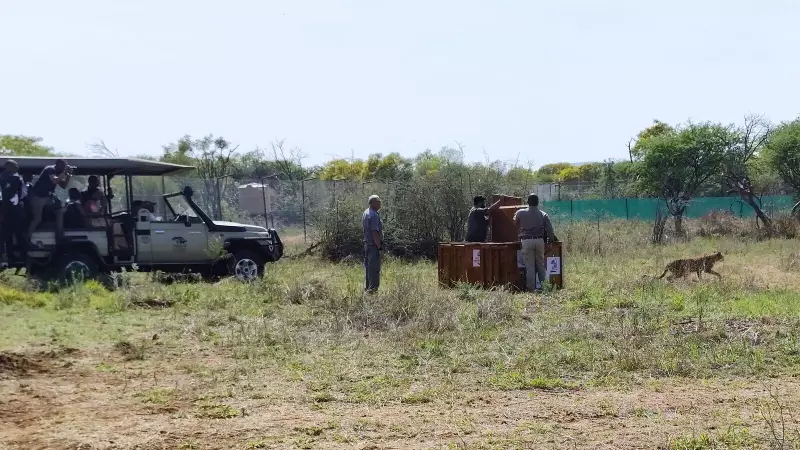
In a significant milestone for wildlife conservation, Botswana has formally handed over eight cheetahs to India during President Droupadi Murmu's state visit to the African nation. The symbolic transfer ceremony took place at the Mokolodi Nature Reserve on Thursday, November 13, 2025, marking a crucial step in India's ambitious cheetah reintroduction program.
Historic Handover Ceremony
The prestigious event was attended by both President Droupadi Murmu and Botswana's President Duma Gideon Boko, who jointly witnessed the release of a cheetah for quarantine procedures. The ceremony at Gaborone's nature reserve represented not just an exchange of wildlife but a strengthening of diplomatic ties between the two nations through their shared commitment to conservation.
The eight cheetahs represent the latest addition to India's growing population of the big cats, following previous transfers from Namibia and South Africa. This carefully coordinated international effort aims to reestablish cheetahs in their historical Indian habitat after the species was declared extinct in the country in 1952.
Presidential Vision for Conservation
President Murmu expressed her gratitude for Botswana's contribution, emphasizing the deeper significance of the gesture. "The gifting of these cheetahs is a reflection of Botswana's commitment to wildlife conservation," she stated during the ceremony.
The President further elaborated on the importance of this conservation initiative, noting that "These cheetahs will join their brothers and sisters in India's Kuno National Park, helping us to restore the species of this historical habitat." Her words highlighted the ecological significance of returning cheetahs to landscapes they once roamed freely.
Journey to Kuno National Park
The newly transferred cheetahs will undergo necessary quarantine protocols before beginning their journey to India. Upon arrival, they will be introduced to Kuno National Park in Madhya Pradesh, which has been carefully prepared to host these magnificent predators.
Kuno National Park was selected for cheetah reintroduction due to its suitable habitat, adequate prey base, and significant conservation infrastructure. The park has already successfully accommodated previous cheetah translocations and has demonstrated its capacity to support a growing population of the spotted cats.
This latest transfer brings renewed hope for creating a sustainable cheetah population in India, contributing to global conservation efforts and restoring ecological balance in Indian grassland ecosystems. The successful integration of these eight cheetahs could pave the way for future collaborations and translocations.
As the cheetahs prepare for their new home in India, wildlife enthusiasts and conservationists worldwide are watching this groundbreaking initiative with great anticipation, hoping to witness the successful revival of cheetahs in Indian wilderness after decades of absence.





